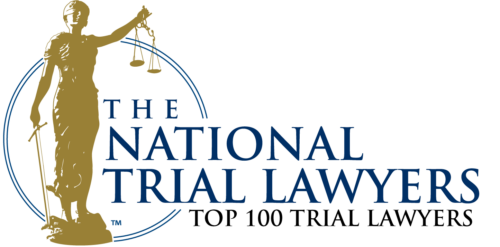In 2016, Pennsylvania legally recognized Uber and Lyft after nearly two years of legal battles, temporary licenses and millions of dollars in fines. By the end of 2019, Uber and Lyft combined for nearly 64 million app users, seven million drivers, and 7.5 billion rides per year. In Philadelphia alone, Uber and Lyft provide more than 36 million rides per year. Keeping in mind that there is a car accident in the United States every 60 seconds, the likelihood of being in an accident involving an Uber or Lyft car is high.
Act 164 provides that the transportation network companies like Uber and Lyft must provide for drivers and passengers, while the driver is engaged on the app, first party medical benefit coverage and third party liability insurance. Since 2016, Uber and Lyft have made numerous changes to their available insurance coverage and their user agreements, limiting the availability of justice for drivers and passengers when they are injured in Uber or Lyft car accidents.
How does Uber and Lyft’s Insurance Work?
If a driver for Uber or Lyft is not engaged on the app (sometimes referred to as Phase 1), then the driver’s personal auto insurance applies to any accident.
If a driver for Uber or Lyft is on the app but has not yet secured a ride (sometimes referred to as Phase 2), then the insurance required by Act 164 kicks into play. Drivers for both companies are provided with $5,000 in Personal Injury Protection (PIP) to cover medical expenses. Drivers for both companies are also eligible to receive comprehensive and collision coverage, but only if they have comprehensive and collision coverage on their personal auto policy (and after paying a deductible). Third party liability coverage is $50,000 per person and $100,000 per accident. The only exception is for Uber drivers; if their policies provide higher coverage than the Uber coverage, then the personal insurance is primary, and the Uber policy is secondary.
Keep in mind that Uber and Lyft drivers generally do not get the benefit of their personal policies. Most auto insurance policies contain an exclusion of coverage when the car is being used for commercial purposes such as, for example, driving for Lyft or Uber. There are “ride-share” policies available for purchase that could provide additional coverage. The positive is that the driver, if injured in an accident during this Phase, is full tort because s/he is driving a commercial vehicle.
If a driver for Uber or Lyft is on the app and has secured a ride (on the way to pick up a passenger or with a passenger in the car, also known as Phase 3), the insurance coverage changes once again. The driver still has $5,000 in PIP coverage, whereas the passenger is afforded $25,000 in PP coverage. The third party liability coverage grows to $1,000,000 combined single limit, meaning that the $1,000,000 covers all property damage and liability claims. The driver is provided with collision and comprehensive coverage (again, so long as the driver has collision and comprehensive coverage on his/her personal policy).
Uninsured and Underinsured Motorist Coverage
The biggest difference in insurance coverage is in uninsured/underinsured motorist coverage. Uber provides $1,000,000 in UM/UIM coverage should the third party coverage be insufficient to compensate the injured party. Lyft, however, effective April 1, 2020, eliminated UM/UIM coverage. As a result, if the third party coverage is limited, an injured person will not be able to get adequate compensation. And this is not a violation of Act 164, as UM/UIM is not required pursuant to the Act.
In December 2020 and in January 2021, Lyft and Uber changed their user agreements to further limit an injured party’s right to compensation. Both Lyft and Uber updated their user agreements to include an arbitration clause, mandating that any personal injury claim be arbitrated with a large national company rather than filed in a court of law.
How Our Lawyers can help with your Uber and Lyft Accident Cases
Normally, if you have a personal injury claim from an accident that occurred in Philadelphia or where the defendants have contacts, reside in or do business in Philadelphia, that does not settle before the statute of limitations, we file a lawsuit on your behalf in the Philadelphia County Court of Common Pleas, where we present the case in front of an arbitration panel of three lawyers (if the case is worth less than $50,000) or in front of a jury comprised of Philadelphia residents (if the case is worth more than $50,000).
With this new user agreement, we will now be forced to file your uber passenger accident claim with the American Arbitration Association (AAA) to be heard by one attorney hired by and working for the AAA. This is a much more conservative venue to hear the case and deprives you of your ability to have a trial with a jury of your peers. We expect there will be a legal challenge to this provision, and we hope the legislature will revisit Act 164 to potentially cure this wrong.
Further, the new user agreements say that, if you agree to the terms of use of Lyft and Uber, you are acknowledging that the drivers do not work for Lyft and Uber but, instead, are independent contractors. This is an attempt by Lyft and Uber to insulate themselves from liability and responsibility for any accident caused by a driver using the app. Again, this is something we expect to be challenged in Court.
Given the complicated nature of cases involving Uber and Lyft, it is imperative you have an Uber or Lyft accident attorney to guide you through the various legal issues and insurance coverages. Our attorneys have extensive experience in handling Uber and Lyft cases (one drove for Uber in the past) and can maximize your potential recovery due to their in-depth knowledge and experience.
Related Posts
- Types of Injuries Caused by the Amtrak Train 188 Derailment
- When is Hearsay Admissible as Evidence in an Injury Case?
- When to Hire an Attorney After a Car Accident in Pennsylvania
- Who is Liable for Truck Accidents Caused by Tow Hitch Defects?
- Are Insurance Adjusters Who Act in Bad Faith Personally Liable?















